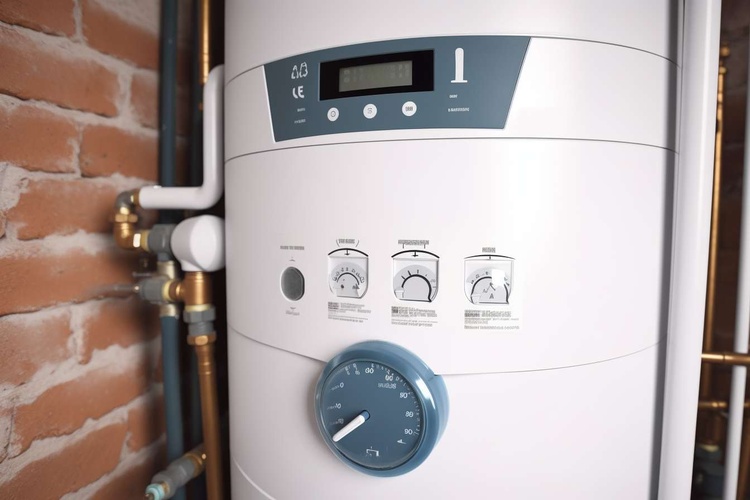Garage Sales at Warehouses and Wholesale Stores in Georgia
In Georgia, the hidden gems found in small department stores, hypermarkets, and garage sales are unknown to many. These stores offer a wide range of products that can't be found anywhere else. These places are characterized by their diversity and are an interesting alternative for those looking for unique and unusual items.

Warehouse garage sales have become increasingly popular throughout Georgia, offering shoppers access to substantial inventories at deeply discounted prices. Unlike traditional residential garage sales, these commercial events typically feature new or gently used merchandise from retailers, wholesalers, and distributors looking to liquidate excess inventory, discontinued items, or returned goods. For bargain hunters and resellers alike, these sales represent an opportunity to purchase quality merchandise at a fraction of retail prices, often saving 50-80% compared to standard retail channels.
What Are Mystery Sales in Small Stores?
Mystery sales represent a specialized category within the warehouse garage sale ecosystem in Georgia. These events, often held by smaller independent stores and boutiques, add an element of surprise to the traditional discount shopping experience. During mystery sales, merchants package items together in sealed boxes or bags, selling them at a fixed price without revealing the exact contents. Shoppers purchase based on general category descriptions such as “electronics,” “home goods,” or “clothing,” but the specific items remain unknown until after purchase.
The appeal lies in both the potential value and the excitement of discovery. Retailers typically ensure the merchandise value exceeds the purchase price, sometimes substantially, creating the possibility of finding high-value items at significant discounts. For store owners, mystery sales offer an efficient way to move diverse inventory quickly without having to price and display each item individually. These events have gained particular traction in Atlanta, Savannah, and other urban centers throughout Georgia, where small businesses use them to generate foot traffic and clear seasonal inventory.
How to Choose a Suitable Location for the Warehouse?
Selecting an appropriate location for warehouse garage sales in Georgia requires careful consideration of multiple factors. Accessibility ranks among the most critical concerns—venues should offer convenient parking, easy loading access for purchased items, and proximity to major transportation routes. Many successful warehouse sales operators choose locations near interstate highways or major thoroughfares in metropolitan areas like Atlanta, Macon, or Augusta to maximize customer reach.
Space requirements also play a crucial role in location selection. The venue must accommodate both merchandise display and customer movement, with sufficient room for shoppers to browse comfortably. Many operators find success with facilities ranging from 5,000 to 20,000 square feet, depending on inventory volume. Additionally, zoning regulations and permitting requirements vary across Georgia municipalities, necessitating research into local ordinances regarding temporary retail operations, signage, and parking requirements. Some operators opt for established event spaces or former retail locations that already meet commercial code requirements, while others may temporarily convert industrial spaces with appropriate permits.
How to Efficiently Prepare Goods in the Warehouse?
Efficient preparation of merchandise represents a cornerstone of successful warehouse garage sales in Georgia. Organization begins with systematic inventory assessment, categorizing items by type, condition, and potential value. Many experienced operators implement color-coded tagging systems to indicate pricing tiers, making it easier for both staff and customers to understand values quickly. This preparation phase typically begins weeks before the actual sale event.
Strategic merchandise presentation significantly impacts customer experience and sales outcomes. Creating logical flow patterns throughout the space helps guide shoppers naturally from one section to another. High-demand categories like electronics, furniture, and brand-name apparel often perform best when positioned toward the rear of the space, encouraging customers to view other merchandise en route. Proper signage throughout the venue helps shoppers navigate efficiently, while designated testing areas for electronic items or furniture assembly spaces can reduce returns and increase customer confidence. Some Georgia warehouse sale operators have found success with daily rotation of premium merchandise, bringing out fresh inventory each morning to encourage repeat visits during multi-day events.
Making the Most of Warehouse Garage Sales
Both shoppers and sellers can maximize value at warehouse garage sales through strategic approaches. For consumers, arriving early offers the best selection, while shopping late in the event often yields the deepest discounts as sellers become motivated to reduce remaining inventory. Experienced shoppers bring measuring tapes, reusable bags, and cash to facilitate quick purchasing decisions. Many regular attendees in Georgia develop relationships with sale operators to gain information about upcoming events or special merchandise.
For sellers and operators, successful warehouse sales depend on effective marketing and inventory management. Digital promotion through social media, email lists, and online event calendars has proven particularly effective in Georgia markets. Many operators find value in creating special promotions like “early bird” access for a small fee or bundle pricing on multiple items. Inventory tracking systems help prevent overselling and ensure accurate pricing throughout the event. Some Georgia warehouse sale operators partner with local charities to donate unsold merchandise, creating both community goodwill and potential tax benefits.
Cost Considerations for Warehouse Garage Sales
Operating warehouse garage sales in Georgia involves various expenses that impact both sellers and buyers. Venue rental represents a significant cost factor, with prices varying widely across the state. In metropolitan Atlanta, temporary commercial space typically ranges from $0.75-$2.50 per square foot monthly, while smaller cities like Albany or Rome offer more affordable rates between $0.50-$1.25 per square foot. Many operators secure short-term leases for 1-3 months to accommodate setup, sale execution, and cleanup.
| Expense Category | Typical Cost Range in Georgia | Notes |
|---|---|---|
| Venue Rental (Atlanta metro) | $0.75-$2.50 per sq ft monthly | Higher for prime retail corridors |
| Venue Rental (Smaller cities) | $0.50-$1.25 per sq ft monthly | More affordable in rural areas |
| Staffing | $12-$15 per hour per staff member | Usually requires 5-10 staff for medium events |
| Insurance | $500-$1,500 per event | Varies based on inventory value and duration |
| Marketing | $500-$2,000 per event | Includes online and physical advertising |
| Permits | $150-$500 | Varies by municipality requirements |
Prices, rates, or cost estimates mentioned in this article are based on the latest available information but may change over time. Independent research is advised before making financial decisions.
For shoppers, understanding the pricing structure at these events helps maximize value. Many warehouse sales use tiered discount structures, with prices decreasing as the event progresses. Initial pricing typically offers merchandise at 40-60% below retail, with discounts deepening to 70-90% by the final day. Some operators implement “fill-a-bag” promotions on closing days, where customers pay a flat fee for whatever merchandise they can fit into a provided container.
Conclusion
Warehouse garage sales represent a vibrant segment of Georgia’s retail landscape, offering benefits for both consumers seeking bargains and businesses managing inventory. These events transform traditional retail models by creating temporary, high-volume sales environments that generate excitement and urgency among shoppers. The continued popularity of warehouse sales reflects their ability to meet consumer demand for value while providing businesses with efficient inventory management solutions. As economic conditions fluctuate, these sales events likely will remain fixtures in Georgia’s commercial ecosystem, evolving to incorporate new technologies and consumer preferences while maintaining their fundamental appeal as destinations for discovery and deals.




